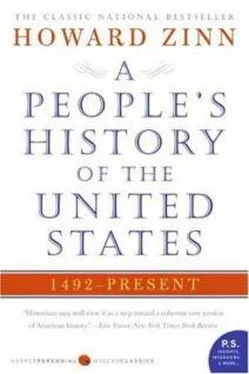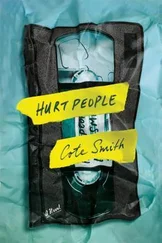Howard Zinn - A People
Здесь есть возможность читать онлайн «Howard Zinn - A People» весь текст электронной книги совершенно бесплатно (целиком полную версию без сокращений). В некоторых случаях можно слушать аудио, скачать через торрент в формате fb2 и присутствует краткое содержание. Издательство: Harper-Collins, Жанр: Фэнтези, на английском языке. Описание произведения, (предисловие) а так же отзывы посетителей доступны на портале библиотеки ЛибКат.
- Название:A People
- Автор:
- Издательство:Harper-Collins
- Жанр:
- Год:неизвестен
- ISBN:нет данных
- Рейтинг книги:4 / 5. Голосов: 1
-
Избранное:Добавить в избранное
- Отзывы:
-
Ваша оценка:
- 80
- 1
- 2
- 3
- 4
- 5
A People: краткое содержание, описание и аннотация
Предлагаем к чтению аннотацию, описание, краткое содержание или предисловие (зависит от того, что написал сам автор книги «A People»). Если вы не нашли необходимую информацию о книге — напишите в комментариях, мы постараемся отыскать её.
A People — читать онлайн бесплатно полную книгу (весь текст) целиком
Ниже представлен текст книги, разбитый по страницам. Система сохранения места последней прочитанной страницы, позволяет с удобством читать онлайн бесплатно книгу «A People», без необходимости каждый раз заново искать на чём Вы остановились. Поставьте закладку, и сможете в любой момент перейти на страницу, на которой закончили чтение.
Интервал:
Закладка:
Political scientist William Grover ( The President as Prisoner ), evaluating environmental policy under Carter and Reagan as part of his penetrating "structural critique" of both presidents, concluded:
OSHA appears caught in a cycle of liberal presidents-who want to retain some health and safely regulatory programs, but who also need economic growth for political survival-and conservative presidents, who focus almost exclusively on the growth side of the equation. Such a cycle will always tend to subordinate the need for safe and healthful workplaces to… ensuring that commitment to OSHA will only be as strong as the priorities of business will allow.
George Bush presented himself as the "environmental president," and pointed with pride to his signing of the Clean Air Act of 1990. But two years after that act was passed, it was seriously weakened by a new rule of the Environmental Protection Agency that allowed manufacturers to increase by 245 tons a year hazardous pollutants in the atmosphere.
Furthermore, little money was allocated for enforcement. Contaminated drinking water had caused over 100,000 illnesses between 1971 and 1985, according to an EPA report. But in Bush's first year in office, while the EPA received 80,000 complaints of contaminated drinking water, only one in a hundred was investigated. And in 1991 and 1992, according to a private environmental group, the National Resources Defense Council, there were some 250,000 violations of the Safe Water Drinking Act (which had been passed during the Nixon administration).
Shortly after Bush took office, a government scientist prepared testimony for a Congressional committee on the dangerous effects of industrial uses of coal and other fossil fuels in contributing to "global warming," a depletion of the earth's protective ozone layer. The White House changed the testimony, over the scientist's objections, to minimize the danger (Boston Globe , October 29, 1990). Again, business worries about regulation seemed to override the safety of the public.
The ecological crisis in the world had become so obviously serious that Pope John Paul II felt the need to rebuke the wealthy classes of the industrialized nations for creating that crisis: "Today, the dramatic threat of ecological breakdown is teaching us the extent to which greed and selfishness, both individual and collective, are contrary to the order of creation."
At international conferences to deal with the perils of global warming, the European Community and Japan proposed specific levels and timetables for carbon dioxide emissions, in which the United States was the leading culprit. But, as the New York Times reported in the summer of 1991, "the Bush Administration fears that… it would hurt the nation's economy in the short term for no demonstrable long-term climatic benefit." Scientific opinion was quite clear on the long-term benefit, but this was not as important as "the economy"-that is, the needs of corporations.
Evidence became stronger by the late eighties that renewable energy sources (water, wind, sunlight) could produce more usable energy than nuclear plants, which were dangerous and expensive, and produced radioactive wastes that could not be safely disposed of. Yet the Reagan and Bush administrations made deep cuts (under Reagan, a 90 percent cut) in research into renewable energy possibilities.
In June 1992 more than a hundred countries participated in the Earth Summit environmental conference in Brazil. Statistics showed that the armed forces of the world were responsible for two- thirds of the gases that depleted the ozone layer. But when it was suggested that the Earth Summit consider the effects of the military on environmental degradation, the United States delegation objected and the suggestion was defeated.
Indeed, the preservation of a huge military establishment and the retention of profit levels of oil corporations appeared to be twin objectives of the Reagan-Bush administrations. Shortly after Ronald Reagan took office, twenty-three oil industry executives contributed $270,000 to redecorate the White House living quarters. According to the Associated Press:
The solicitation drive… came four weeks after the President decontrolled oil prices, a decision worth $2 billion to the oil industry… Jack Hodges of Oklahoma City, owner of Core Oil and Gas Company, said: "The top man of this country ought to live in one of the top places. Mr. Reagan has helped the energy business."
While he built up the military (allocations of over a trillion dollars in his first four years in office), Reagan tried to pay for this with cuts in benefits for the poor. There would be $140 billion of cuts in social programs through 1984 and an increase of $181 billion for «defense» in the same period. He also proposed tax cuts of $190 billion (most of this going to the wealthy).
Despite the tax cuts and the military appropriations, Reagan insisted he would still balance the budget because the tax cuts would so stimulate the economy as to generate new revenue. Nobel Prize-winning economist Wassily Leontief remarked dryly: "This is not likely to happen. In fact, I personally guarantee that it will not happen."
Indeed, Department of Commerce figures showed that periods of lowered corporate taxes (1973–1975, 1979–1982) did not at all show higher capital investment, but a steep drop. The sharpest rise of capital investment (1975–1979) took place when corporate taxes were slightly higher than they had been the preceding five years.
The human consequences of Reagan's budget cuts went deep. For instance, Social Security disability benefits were terminated for 350,000 people. A man injured in an oil field accident was forced to go back to work, the federal government overruling both the company doctor and a state supervisor who testified that he was too disabled to work. The man died, and federal officials said, "We have a P.R. problem." A war hero of Vietnam, Roy Benavidez, who had been presented with the Congressional Medal of Honor by Reagan, was told by Social Security officials that the shrapnel pieces in his heart, arms, and leg did not prevent him from working. Appearing before a Congressional committee, he denounced Reagan.
Unemployment grew in the Reagan years. In the year 1982, 30 million people were unemployed alt or part of the year. One result was that over 16 million Americans lost medical insurance, which was often tied to holding a job. In Michigan, where the unemployment rate was the highest in the country, the infant death rate began to rise in 1981.
New requirements eliminated free school lunches for more than one million poor children, who depended on the meal for as much as half of their daily nutrition. Millions of children entered the ranks of the officially declared «poor» and soon a quarter of the nation's children-twelve million-were living in poverty. In parts of Detroit, one-third of the children were dying before their first birthday, and the New York Times commented: "Given what's happening to the hungry in America, this Administration has cause only for shame."
Welfare became an object of attack: aid to single mothers with children through the AFDC {Aid to Families with Dependent Children) program, food stamps, health care for the poor through Medicaid. For most people on welfare (the benefits differed from state to state) this meant $500 to $700 a month in aid, leaving them well below the poverty level of about $900 a month. Black children were four times as likely as white children to grow up on welfare.
Early in the Reagan administration, responding to the argument that government aid was not needed, that private enterprise would take care of poverty, a mother wrote to her local newspaper:
I am on Aid to Families with Dependent Children, and both my children are in school… I have graduated from college with distinction, 128th in a class of over 1000, with a B.A. in English and sociology. I have experience in library work, child care, social work and counseling.
Читать дальшеИнтервал:
Закладка:
Похожие книги на «A People»
Представляем Вашему вниманию похожие книги на «A People» списком для выбора. Мы отобрали схожую по названию и смыслу литературу в надежде предоставить читателям больше вариантов отыскать новые, интересные, ещё непрочитанные произведения.
Обсуждение, отзывы о книге «A People» и просто собственные мнения читателей. Оставьте ваши комментарии, напишите, что Вы думаете о произведении, его смысле или главных героях. Укажите что конкретно понравилось, а что нет, и почему Вы так считаете.












